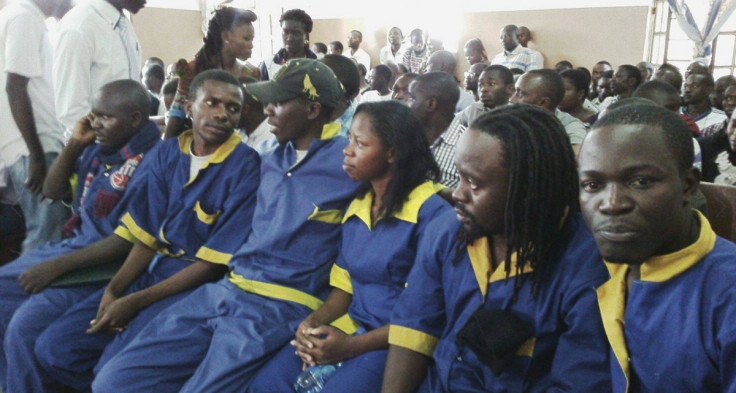DRC: Six Lucha activists face 'forcible removal' from prison after rejecting presidential pardon
The group asked not to be released in solidarity with other prisoners of conscience currently detained

The Congolese government has warned it will forcibly release six imprisoned youth activists who were pardoned last week by the president of the Democratic Republic of Congo (DRC) but rejected the pardon.
President Joseph Kabila on 22 July signed pardon orders allowing the release of a number of individuals from prison, including six members of the youth activist group Lutte pour Le Changement (LUCHA).
Rebecca Kabugho, Melka Kamundo, Justin Kambale Mutsunga , John Balibisire Alipenda, Ghislain Kasereka Muhiwa and Serge Kambale Sivyavugha were sentenced on 24 February to six months imprisonment in Goma in North Kivu as part of a government crackdown on activists calling on the president to step down from power when his mandate expires at the end of the year.
The group asked not to be released from prison in solidarity with other prisoners of conscience, and demanded the pardon included all those in custody pending appeals.
"The president signed three pardon orders - one specifically for the six activists. But they decided not to leave prison in solidarity. The Minister of Justice (Alexis Thambwe Mwamba), meanwhile, has threatened to take them out by force (on Sunday 24 July)," Jean Bwenge, a LUCHA member, told IBTimes UK on Monday (25 July). "They expect to be forcibly taken out any time now".
Lucha activists 'never asked to be pardoned'
According to Bwenge, the group "never asked to be pardoned, but just to be liberated because they should have never been sentenced in the first place".
The activists, whose sentences would end in the next two weeks, "thought it was too easy for the president and the government to say they have freed prisoners of conscience and opened up the political space, but only those who were finishing their sentence", and leave others including Fred Bauma and Yves Makwambala who have been imprisoned without trial for the past 17 months.
What is LUCHA?
LUCHA is an organisation created in Goma, the capital of North Kivu in the Democratic Republic of Congo (DRC), in June 2012.
The organisation's members, who refuse to take arms, affirm the need to take action through critical popular mobilisation.
The activists fit the United Nations definition of persons who have been imprisoned for holding political, religious or other conscientiously-led beliefs, a prisoner of conscience is not tolerated by the state/regime in which they reside.
They are detained despite never having used, nor advocated, violence.
Despite its spirit. this movement has seen its actions repressed – with the National Intelligence Agency (ANR), for instance, intercepting its actions and arresting a number of LUCHA's members.
Read more: Who is Rebecca Kabugho, one of the world's youngest female prisoners of conscience?
Bauma and Makwambala will not be affected by the pardon because the order can only cover individuals who have already been sentenced permanently by a jurisdiction - the two activists are still remanded as they await their trials.
"It's in solidarity with Fred and Yves that they have decided to remain in prison - but if Fred, Yves and others are freed, then they said they would leave," Bwenge added.
Following their pardon, the group released a statement which read: "We see in this measure, first, the recognition of the arbitrary, unfair and political (nature of) our arrest and condemnation five months ago. While this does not erase the inequities (we) face as a punishment for our peaceful struggle for democracy, the recognition of injustice is itself a beginning of justice!"
Presidential pardon 'a good step forward'
The pardons have sparked reactions from a number of foreign governments in Kinshasa.
The United States embassy, for instance, stated in a tweet: "The presidential pardon is a good step forward; (we) encourage the release of other prisoners to build trust before the (national) dialogue (ahead of the elections)".
Encouraged by the United Nations, the African Union and the European Union, key political parties recently recognised the need to commence the national dialogue before the end of the month.
François Nkuna Balumuene, ambassador of the DRC to the United States explained the reasons behind the pardons: "These actions (pardons) were motivated by a desire to create a climate of confidence and national cohesion in the DRC as we work toward a national and inclusive political dialogue."
© Copyright IBTimes 2025. All rights reserved.






















